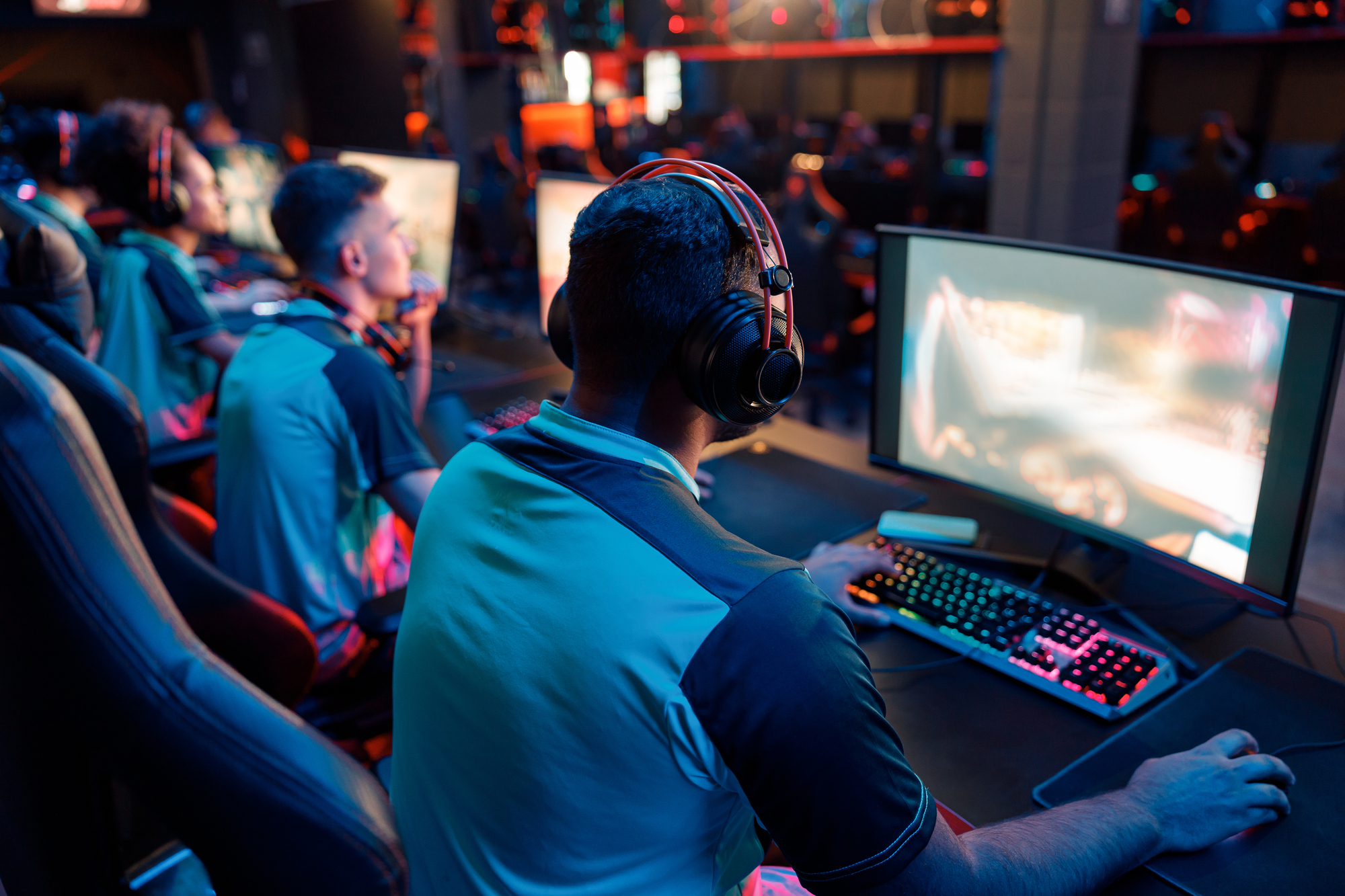Competitive play offers a unique avenue for building emotional resilience. Through the challenges and triumphs of games and sports, individuals develop crucial coping skills that extend far beyond the playing field. Engaging in competitive activities helps people learn to manage stress, handle setbacks, and maintain composure under pressure.
These experiences foster mental toughness and adaptability, key components of emotional resilience. Players face obstacles, make split-second decisions, and deal with both victory and defeat. Each scenario provides valuable lessons in emotional regulation and perseverance.
The social aspect of competitive play also contributes to resilience building. Teamwork, communication, and sportsmanship create a supportive environment where individuals can grow together. This shared experience helps players develop empathy, trust, and a sense of belonging – all essential elements in cultivating emotional strength.
Foundations of Emotional Resilience
Emotional resilience forms the bedrock of mental well-being and shapes how individuals cope with life’s challenges. Play serves as a powerful tool for developing this crucial skill, especially in children who have experienced trauma.
Understanding Resilience and Its Development
Resilience is the ability to bounce back from adversity and adapt to difficult situations. It develops through a combination of genetic factors, environmental influences, and personal experiences. Children build resilience by facing and overcoming manageable challenges, learning from mistakes, and receiving support from caring adults.
Key elements in fostering resilience include:
- Strong relationships with family and friends
- Problem-solving skills
- Emotional regulation
- A positive self-image
- A sense of purpose
Resilient individuals tend to view setbacks as temporary and solvable, rather than permanent or overwhelming.
The Role of Play in Emotional Growth
Play is a vital component in building emotional resilience. Through play, children explore their feelings, practice social skills, and learn to regulate their emotions. Unstructured play allows kids to take risks, make decisions, and solve problems independently.
Benefits of play for emotional growth:
- Enhances creativity and imagination
- Builds self-confidence
- Improves communication skills
- Teaches cooperation and sharing
Competitive play adds an extra layer of emotional learning. It helps children manage disappointment, celebrate success graciously, and persist in the face of challenges.
Childhood Trauma and Healing Through Play
For children who have experienced trauma, play can be a powerful healing tool. It provides a safe space to process difficult emotions and experiences. Through play therapy, children can work through traumatic events at their own pace, without the pressure of direct confrontation.
Play-based interventions for trauma:
- Sand tray therapy
- Art therapy
- Role-playing games
- Storytelling
These methods allow children to express themselves non-verbally and gain a sense of control over their experiences. Play also helps rebuild trust and form positive relationships, which are essential for overcoming trauma and developing resilience.
Cultivating Emotional Regulation Through Competitive Play
Competitive play offers valuable opportunities for children to develop emotional regulation skills. Through games and challenges, kids learn to manage their feelings, solve problems, and exercise self-control in high-stakes situations.
Developing Coping Skills with Games
Board games and other competitive activities help children build coping strategies for handling stress and disappointment. When kids lose a game, they practice managing frustration and bouncing back from setbacks. Repeated exposure to small losses in safe play environments builds resilience over time.
Games also teach children to stay calm under pressure. As the stakes rise near the end of a close match, players must regulate their excitement or anxiety to make good decisions. This mimics real-world scenarios where emotional control is key.
Parents and educators can guide kids in developing healthy coping techniques during play. Encouraging deep breaths, positive self-talk, and focusing on effort rather than outcomes helps children process emotions constructively.
Problem-Solving and Overcoming Challenges
Competitive play constantly presents obstacles for children to overcome. Whether strategizing their next move in chess or working out how to score points in a sport, kids exercise critical thinking and decision-making skills.
These problem-solving experiences build confidence. As children successfully navigate game challenges, they gain faith in their ability to handle adversity. This self-assurance carries over into other areas of life.
Games also teach kids to adjust their approach when initial strategies fail. Adapting to changing circumstances and learning from mistakes are valuable life skills fostered through play. The low-stakes environment allows for experimentation and growth.
Building Self-Control and Delayed Gratification
Many games require players to wait their turn, follow rules, and think before acting. These elements help kids develop impulse control and patience – key components of emotional regulation.
Children learn to resist immediate gratification in pursuit of longer-term goals. In a board game, this may mean saving resources for a big move later rather than using them right away. Such experiences translate to better self-control in daily life.
Competitive play also teaches kids to manage their reactions to others’ choices. When an opponent makes a smart play, children must regulate potential feelings of jealousy or anger. This builds emotional maturity and social skills.
Enhancing Social and Cognitive Skills Through Group Activities
Group activities foster social connections, develop communication skills, and promote cognitive growth. These interactive experiences create valuable learning opportunities for participants of all ages.
Fostering Creativity and Flexibility with Role-Playing
Role-playing games encourage participants to think creatively and adapt to new situations. Players take on different personas, solving problems and making decisions from fresh perspectives. This process builds empathy and flexibility in thinking.
These activities often require quick thinking and improvisation. Participants learn to respond to unexpected challenges, enhancing their ability to adapt in real-life situations.
Role-playing also helps develop social skills. Players must communicate effectively with others while staying in character. This practice improves verbal and non-verbal communication abilities.
Importance of Social Connections and Cooperative Games
Cooperative games strengthen social bonds and teach teamwork. Players work together toward shared goals, learning to collaborate and support one another.
These activities promote active listening and clear communication. Participants must express ideas clearly and consider others’ viewpoints to succeed.
Cooperative games also build trust among players. As team members rely on each other, they develop stronger social connections. These bonds often extend beyond the game, fostering lasting friendships.
Problem-solving skills improve through cooperative play. Groups must strategize and make decisions collectively, enhancing cognitive abilities.
The Educational Value of Storytelling and Communication
Storytelling activities enhance language skills and creativity. Participants learn to structure narratives, use descriptive language, and engage an audience.
These exercises improve memory and cognitive processing. Storytellers must organize information and recall details, strengthening mental faculties.
Communication skills grow through storytelling practice. Speakers learn to modulate their voice, use appropriate body language, and respond to audience reactions.
Listening skills also develop as participants engage with others’ stories. They learn to focus, interpret meaning, and provide thoughtful responses.
Storytelling fosters empathy by allowing individuals to share experiences and perspectives. This broadens understanding and promotes social awareness.
Supportive Environments for Resilient Behavior
Creating supportive environments helps children build emotional resilience through play and social interactions. These environments provide safety, encourage healthy risk-taking, and empower children to develop crucial skills.
Safe Environment and Emotional Support from Caregivers
A safe environment forms the foundation for developing resilience in children. Parents and caregivers play a key role in establishing this secure base. They provide emotional support by responding to children’s needs and validating their feelings.
Consistent routines and clear boundaries help children feel secure. This stability allows them to explore and take on challenges with confidence. Caregivers who model resilient behavior teach children how to cope with stress and setbacks.
Positive reinforcement and praise for effort rather than just outcomes boost children’s self-esteem. This approach encourages them to persevere through difficulties and learn from mistakes.
Promoting Healthy Risk-Taking and Self-Esteem in Children
Allowing children to take age-appropriate risks builds confidence and problem-solving skills. Caregivers can set up safe challenges that push children slightly out of their comfort zones.
Physical activities like climbing, jumping, or trying new sports offer chances for healthy risk-taking. These experiences teach children to assess situations, make decisions, and trust their abilities.
Encouraging independent play and decision-making fosters autonomy. When children solve problems on their own, they gain a sense of competence. This boosts their self-esteem and willingness to tackle future challenges.
Praising specific actions and efforts rather than innate traits helps develop a growth mindset. This perspective sees abilities as skills that can improve with practice, promoting resilience.
Empowering Children and Communities Through Movement and Play
Physical activity and play are powerful tools for building resilience. They develop gross motor skills, boost mood, and provide opportunities for social interaction.
Outdoor play areas with varied terrain and equipment challenge children physically and mentally. These spaces allow for exploration, creativity, and risk assessment in a natural setting.
Community programs that offer structured and unstructured play benefit children’s development. Sports teams, dance classes, and playground meetups provide chances to practice social skills and emotional regulation.
Inclusive play spaces that accommodate different abilities foster empathy and social awareness. These environments teach children to adapt, cooperate, and support one another.












